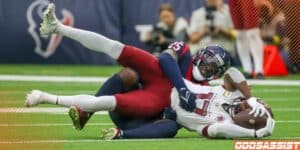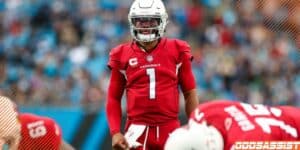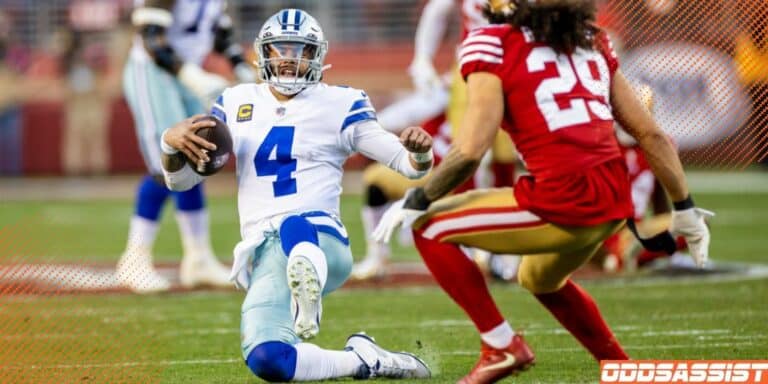Companies featured on this page may be our partners who compensate us if you sign up for one through our links. This doesn't affect our ratings or opinions in any way. Must be 21+. Gambling Problem? Call 1-800-GAMBLER. See full disclosure.
Units in sports betting are measurements individuals use to compare the size of a bet or wager. Typically, a unit is what a bettor will place on a typical bet.
One unit is equal to a certain percentage of the amount of money in the individual’s account on the sportsbook, meaning that the actual dollar amount for a unit will vary.
For example, if a bettor has $1,000 in their sportsbook account—referred to as their bankroll—one unit may be $10, or 1% of their bankroll. In this case, a $50 wager would be measured as 5 units.
Units are a way to standardize bet amounts across people who may wager different amounts. While a pro sports bettor may wager $1,000 on a standard bet, a recreational gambler may bet just $10.
Instead of the pro bettor sharing how much money they’ve made betting, they will usually say they are up or down X units. Also, people sharing picks often will say they are betting X units, so people following the picks know how much they should be betting instead of simply betting the same amount.
Why Are Units Are Important for Sports Betting
Bettors who share their success stories and statistics with other individuals can use units instead of cash winnings. If individuals risk the same amount of units on multiple bets, hitting on more than 53% of those bets (assuming they have -110 odds) is important to produce a profit.
Units are often a better betting gauge than winning percentage for bettors to discuss earnings.
Suppose two bettors wagered 1 unit on five different bets. The first bettor had a 5-0 betting mark, wagering and winning 1 unit each time to end up betting +5 units.
The second bettor’s mark can be 3-2 and produce more units if they wagered on underdogs and hit the equivalent of 3 units on each successful wager and losing 1 unit on each loss. This would result in +7 units (9 units winning minus 2 units in losses).
In betting, the bottom line for most individuals is to win as much money as possible, securing more bankroll for future bets.
How Large Should a Unit Be?
A good rule of thumb is to make your unit 1% to 5% of your total bankroll. If you have $5,000 in your account(s), your unit would be $50 to $250. If you have just $200, a unit could be between $2 and $10, in this case.
How Many Units Should Bettors Risk?
Each bettor’s risk tolerance will vary significantly and be reflected in their respective bankroll. As a general rule, betting more than 5 units is deemed risky as it could quickly deplete an individual’s bankroll on a string of unsuccessful bets.
Essentially, the smaller your unit is and the less units you place on each game, the longer you can make your bankroll last, even if you lose most of your bets.
On the other hand, if your unit is a higher percentage of a bankroll and/or if you place more units on most bets, the less time your bankroll will last if you lose.






